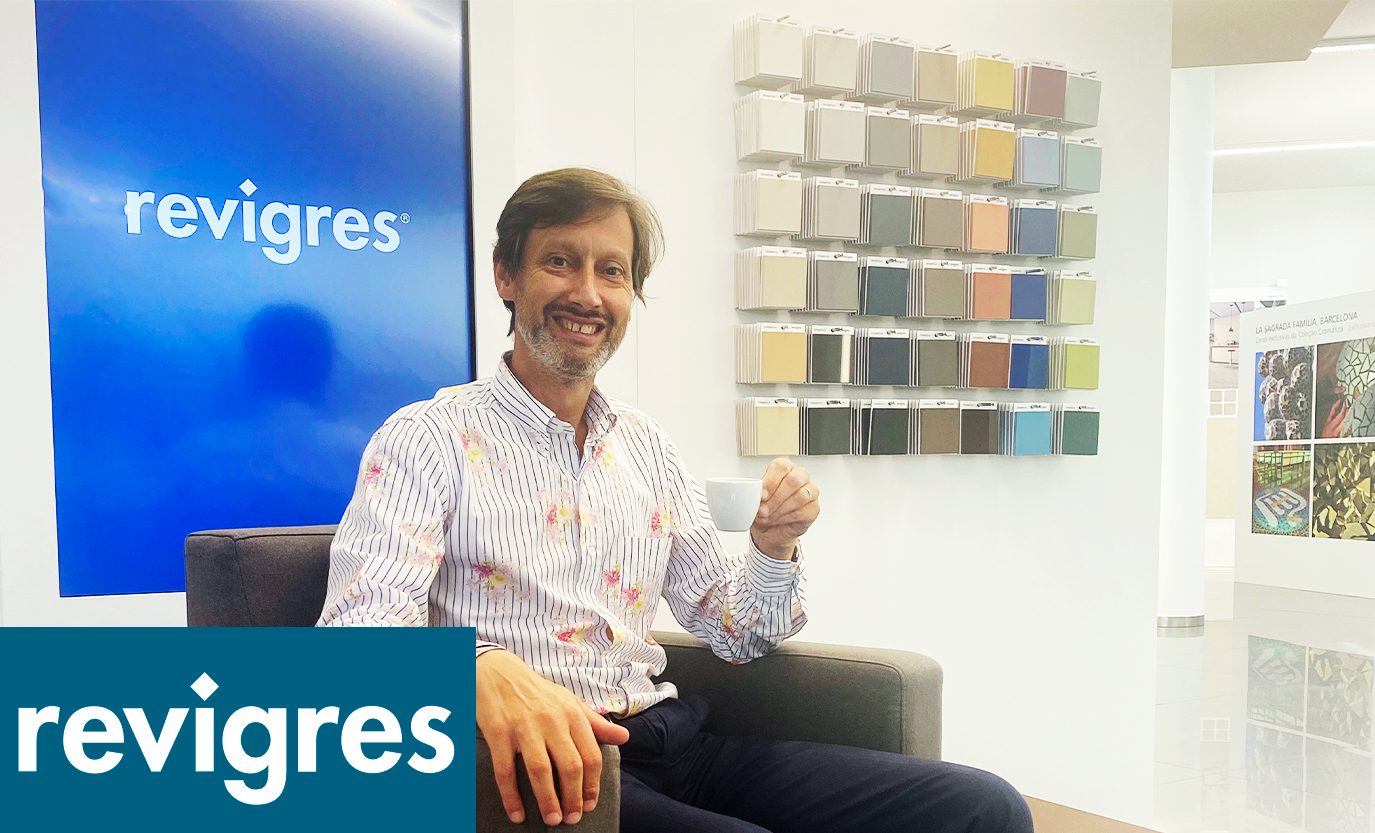“A coffee with…” Nuno França, Logistics Manager, Revigrés

Empack and Logistics & Automation Porto: Tell us about yourself and your career at Revigrés. What is day-to-day life like for a logistics manager at this company?
Nuno França – Revigrés is a brand that produces and commercialises ceramic solutions for the comfort of buildings.
With a clear focus on innovation and solutions that meet the needs of the market, it has been necessary to diversify the range in breadth and depth. All this has required more careful management, from planning, materials management, finished products and delivery to customers.
With the increase in complexity, it is necessary to maintain the business with the same reliable and timely information. To this end, logistics acts as an aggregator between the different links in the chain so that the level of service defined and the results are achieved as a team.
Logistics will continue to work to create a balance inside and outside the organisation so that the objective is met; our mission is always service and customer focus, without forgetting to rationalise costs.
Daily management is about coordinating all the internal and external links in the chain, so that all flows are maintained or actions are created for those that have slowed down or stopped.
The teams start the day with the data obtained from the operation, difficulties for the day’s operation and the status of actions, in order to be a cohesive, multi-skilled and customer-focused team
E.L.Porto: What projects are you currently working on from a logistics and production point of view? What are you focussing on at the moment?
Nuno França – Right now we’re working on a future vision project for logistics.
It’s a project that touches on all areas of logistics and other areas of the business and is expected to last two years.
It’s a project with a support system and operational redesign aspect; our vision was to optimise operations and then, supported by the use of technology, automate processes.
The first area and the one with the longest duration is the redesign of the warehouse, by allocating products according to market needs and also facilitating access to them for subsequent operations.
The next steps will be to optimise the administrative processes and ensure that these processes are as standard as possible. This will allow for the versatility of functions, so that entries, supplies, shipments and all the administrative processes will be more robust and with a versatile service.
Systems integration will also be a subsequent project to reduce all the work involved in booking, confirming, receiving and associated processes, so that the response time is quicker and with less effort on the part of the whole team.
E.L.Porto: Regarding sustainability, do you have any medium/long-term plans to make the production, storage and transport process more efficient?
Nuno França – The ceramics industry consumes energy and water in its production process.
As a production process that uses water to prepare its raw materials, it is then necessary to remove this water from the intermediate product, using energy.
The project aims to make this whole process more sustainable and to study and develop different processes.
Our focus in the near future will be on these two areas, in order to rationalise consumption or reuse as much as possible, depending on the source.
E.L.Porto: Finally, from your point of view and experience, how do you see the logistics sector evolving over the next few years?
Nuno França – Business is a risk, which is why its management has to constantly evaluate changes in the internal and especially external context. Nowadays, with the tsunami of less than encouraging news due to generalised increases, it’s even more important to understand the whole environment.
I believe that logistics has a fundamental role to play in this process as it manages all the flows along the chain and is able to pick up the signals from the supplier to the customer.
Costs will always be on the agenda and regardless of where we are in the chain, and in which specific chain we are, the DNA is always the same: be very careful with costs.
I believe that in the near future, as well as worrying about all the internal rationalisation projects, companies need to follow the path of cooperation.
Co-operation along the chain, with shared information, shared costs and gains and improved visibility which, as you know, reduces complexity and therefore improves flow and service.
Cooperation between economic agents in the internationalisation or export of their products and services, so that together we can achieve the scale needed to achieve our objectives more efficiently in other countries, fighting off competition from other countries that compete with us either by location or price.
In my opinion, these are the points that I consider to be the most important in the short term, which will be on the agenda in order to make up for the reduction in the supply of products and services and also to rationalise in order to compete.
Ricardo Costa will be the keynote speaker for EMPACK AND LOGISTICS & AUTOMATION PORTO
Ricardo Costa will be the keynote speaker for EMPACK AND LOGISTICS & AUTOMATION PORTO Pioneering in the creation of a Happiness Department in the company
More than 60 exhibitors and new products already confirmed for EMPACK AND LOGISTICS & AUTOMATION PORTO
More than 60 exhibitors and new products already confirmed for EMPACK AND LOGISTICS & AUTOMATION PORTO The fair brings together the latest innovations in packaging,
EMPACK AND LOGISTICS & AUTOMATION IS BACK IN PORTO ALREADY IN APRIL
EMPACK AND LOGISTICS & AUTOMATION IS BACK IN PORTO ALREADY IN APRIL The largest trade fair dedicated to professionals in the packaging, storage, maintenance, logistics,
“A coffee with…” LEYRE GUTIÉRREZ DURÁ- Specialist in Packaging and Neuromarketing
“A coffee with…” LEYRE GUTIÉRREZ DURÁ- Specialist in Packaging and Neuromarketing Empack and Logistics & Automation Porto: You have a long career in the packaging







